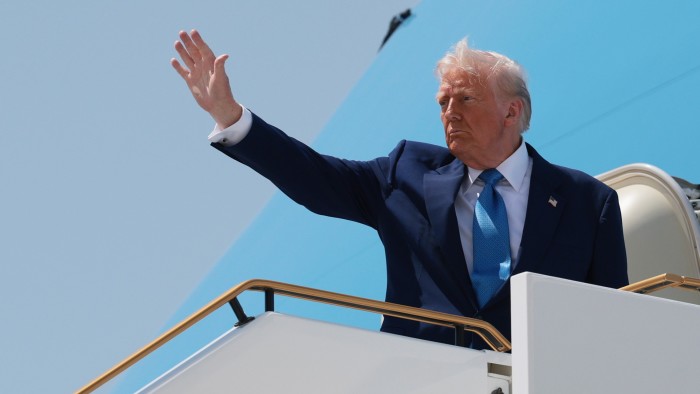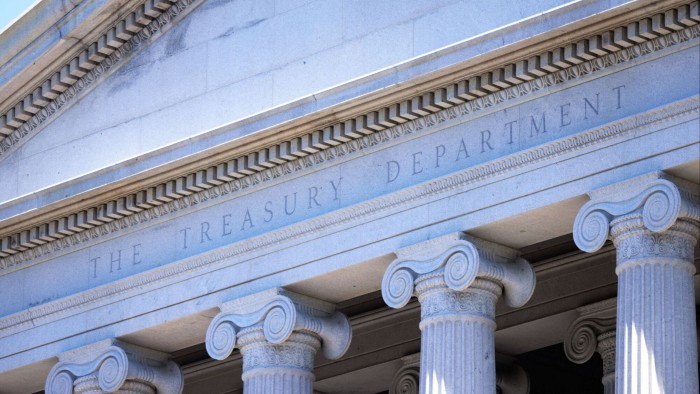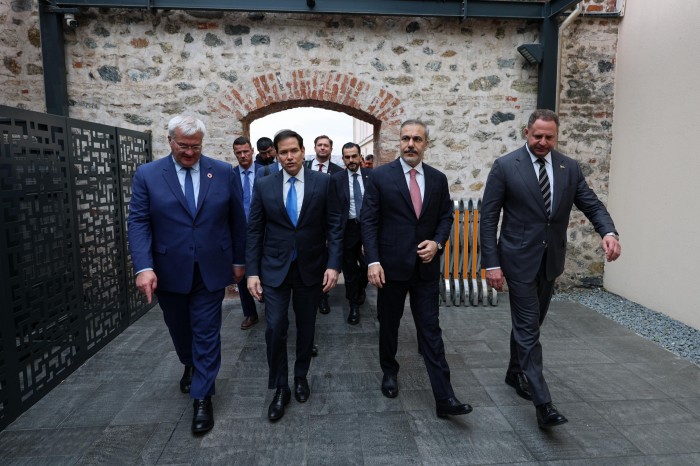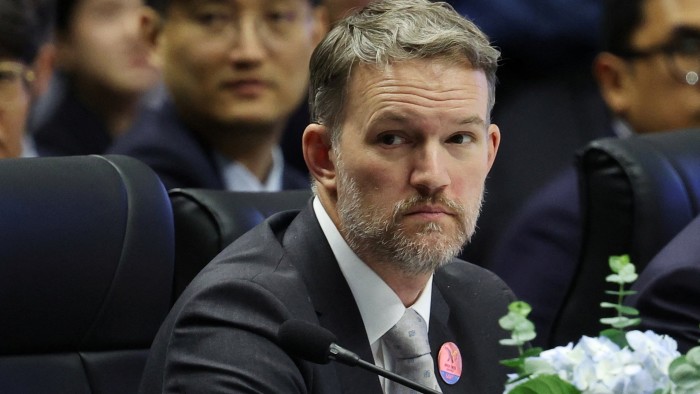Boeing could avoid US justice department prosecution over 737 Max crashes
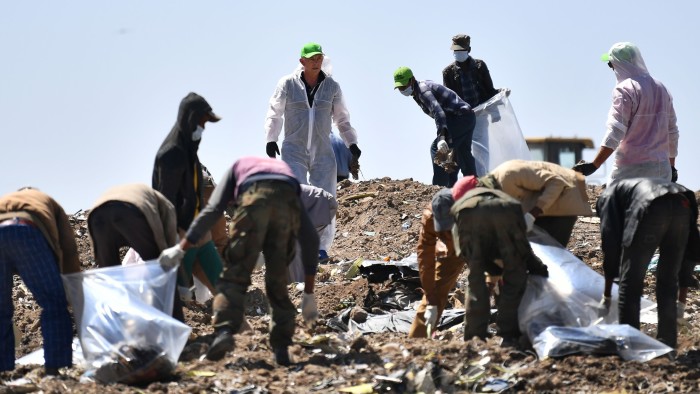
Unlock the Editor’s Digest for free
Roula Khalaf, Editor of the FT, selects her favourite stories in this weekly newsletter.
The US Department of Justice is considering a non-prosecution agreement for Boeing in a case tied to two fatal crashes as the plane maker reverses its previous decision to plead guilty, according to people familiar with the matter.
US prosecutors and the victims’ families on Friday met to discuss the next steps to resolve the long-running case against Boeing, according to one person familiar with the matter.
The options include an agreement that would spare Boeing prosecution, given it had made clear it would not plead guilty, the person added. No final decision has been made. The two sides could still go to trial, with a June 23 date still on the calendar.
If a non-prosecution resolution was reached, the families of the 346 victims who died in the 737 Max crashes would receive $444.5mn from the plane maker, said another person familiar with the matter.
Boeing did not immediately have a comment. The DoJ declined to comment.
The meeting between prosecutors and the families of the victims marks the latest twist in years-long legal proceedings that have often frustrated the families while raising the possibility of consequences for Boeing that could affect its operations, including corporate monitorship and a threat to its ability to secure US government contracts.
Attorneys for the families of the victims expressed outrage at the potential non-prosecution agreement.
“While DoJ claims no final decision has been made, their scripted presentation made it clear that the outcome has already been decided,” said Erin Applebaum, one of the attorneys representing the families. “This isn’t justice. It’s a backroom deal dressed up as a legal proceeding.”
Attorneys Paul Cassell and Bob Clifford said the families would challenge any attempt by prosecutors to dismiss the case.
The case stems from crashes of new 737 Maxes five months apart in 2018 and 2019, prompting regulators worldwide to ground the jet. The cause was traced to flight control software that, when triggered in error, repeatedly forced the nose of the plane downward.
Boeing agreed in July last year to plead guilty to one count of defrauding the US government, for misleading aviation regulators about the software.
But federal judge Reed O’Connor rejected the plea deal in December over provisions related to hiring a corporate monitor for the company that required considering diversity, equity and inclusion in hiring. O’Connor further objected to parts of the deal that would have awarded prosecutors more authority to select the monitor than the court itself.
The DoJ originally deferred prosecution of Boeing in 2021 after it agreed to pay $2.5bn. Prosecutors agreed to resolve the case in three years if the company co-operated with prosecutors and established a compliance programme.
But in January 2024, shortly before charges were scheduled to be dropped, a door flew off a 737 Max during a commercial flight, endangering passengers and crew and prompting prosecutors to press ahead.
Following the incident, the DoJ notified Boeing it had breached the deferred prosecution agreement signed in 2021 and set terms that would lead to either its guilty plea or to a trial.





